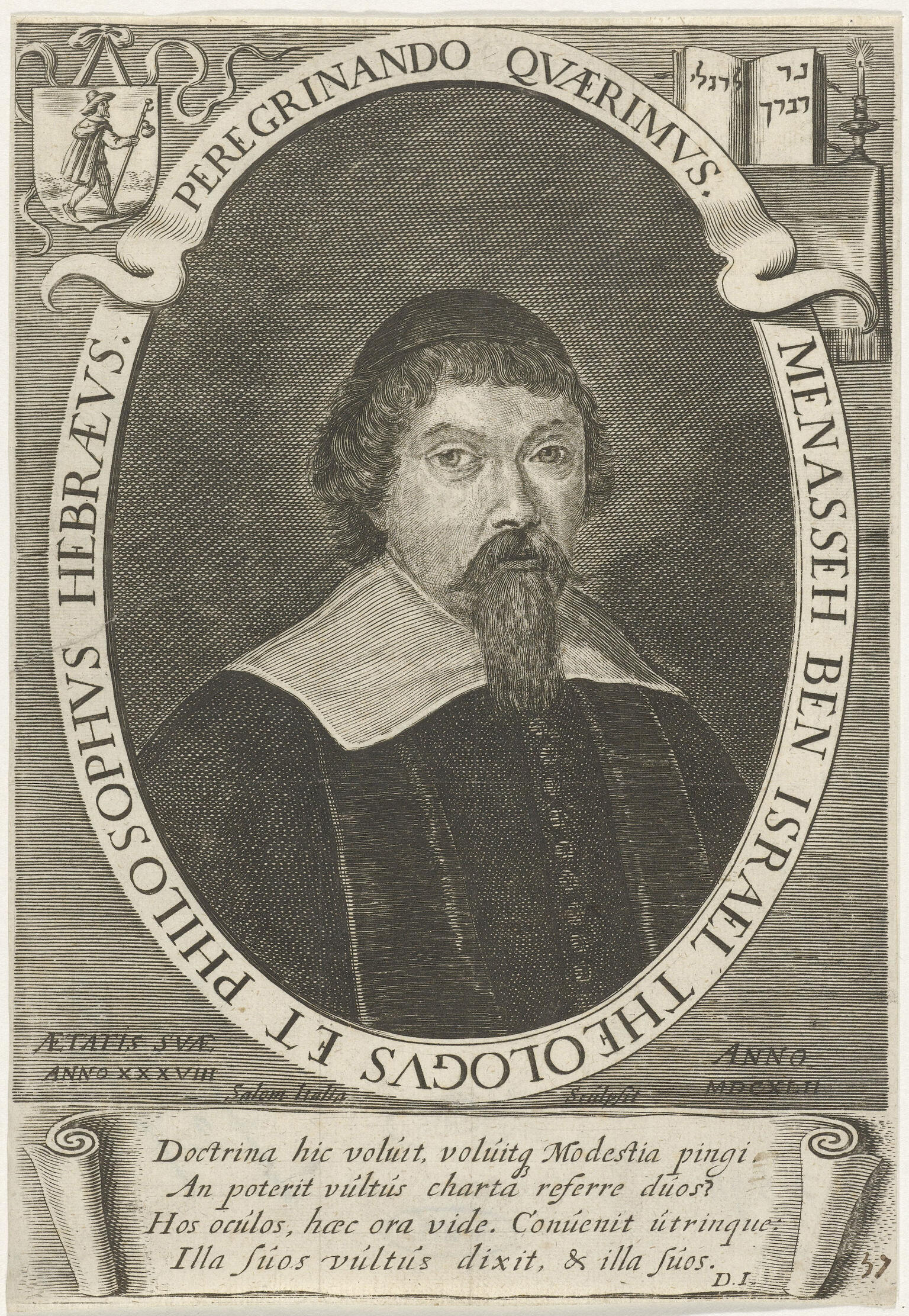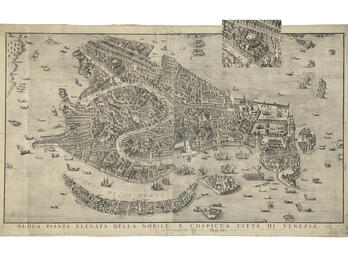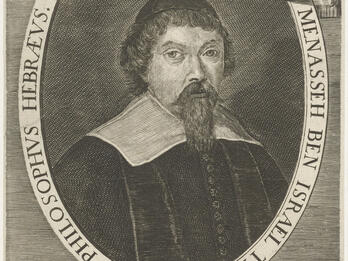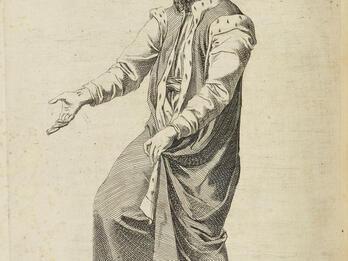The Humble Addresses
[T]he Iewish Nation, though scattered through the whole World, are not therefore a despisable people, but as a Plant worthy to be planted in the whole world, received into Populous Cities: who aught to plant them in those places, which are most secure from danger; being trees of most savory fruit and profit, to be alwayes most favoured with Laws and Priviledges, or Prerogatives, secured and defended by Armes. [ . . . ]
[T]he chiefest place where the Iewes life, is the Turkish Empire, where some of them live in great estate, even in the Court of the Grand Turke at Constantinople. [ . . . ]
The number of the Iews living in this Kingdome of the Great Turke, is very great, and amounts to many Millions. In Constantinople alone there are 48 Synagogues, and in Salaminque 36, and more then fourescore thousand soules in these two Cities alone.
The first King gave them great priviledges which they enjoy untill this day: for besides the liberty, they have every-where, of trading with open shops, of bearing and Office and possessing of any goods, both mooveable and immooveable, he yet graunted them power to judge all Civill causes according to their own Laws amongst themselves. [ . . . ]
In Germany, there lives also a great multitude of Jews, especially at Prague, Vienna and Franckfurt, very much favourd by the most mild and most gracious Emperours, but despised of the people, being a Nation not very finely garnished by reason of their vile cloathing: yet notwithstanding there is not wanting amongst them persons of great quality. The Emperour Matthias made Noble both Mardochai Mairel, and Ferdinando Jacob Bar Seba.
But yet a greater number of Iews are found in the Kingdome of Poland, Prussia and Lethuania, under which Monarchy they have the Jurisdiction to judge amongst themselves all causes, both Criminal and Civil; and also great and famous Academies of their own. The chief Cities where the Nation liveth, are Lublin and Cracow. [ . . . ] There is in this place such infinite number of Iewes; that although the Cosaques in the late warres have killed of them above one hundred and fourescore thousand; yet it is sustained that they are yet at this day as innumerable as those were that came out of Egypt. In that Kingdome the whole Negotiation is in the hand of the Iews, the rest of the Christians are either all Noble-men or Rustiques and kept as slaves.
In Italy they are generally protected by all the Princes: their principall residence is in the most famous City of Venice; so that in that same City alone they possesse about 1400 Houses; and are used there with much courtesy and clemency. Many also live in Padoa and Verona; others in Mantua, and also many in Rome itself. Finally they are scattered here and there in the chief places of Italy, and do live there with many speciall priviledges.
In the Government of the great Duke of Tuscany, they are by that Prince most graciously & bountifully dealt with, having power from him graunted, to have their Judicatory by themselves, and to judge in all matters, both Civill and Criminall; besides many other Priviledges whereof I my self have the Copies in hand. [ . . . ]
In the Kingdome of Barbary, there lives also a great number of Iews, who-ever cruelly and basely used by that Barbarous Nation, except at Marrocco, the Court and Kings house, where they have their Naguid or Prince that governs them, and is their Iudge, and is called at this day, Seignor Moseh Palache: and before him was in the same Court, that Noble family Ruthes, that had power and Iurisdiction of all kinde of punishment, onely life and death excepted.
In the Low-Countries also, the Iews are received with great Charity and Benevolency, and especially in this most renowned City of Amsterdam, where there are no lesse than 400 Families; and how great a trading and Negotiation they draw to that City, experience doth sufficiently witness. They have there no lesse then three hundred houses of their own, enjoy a good part of the West and East-Indian Compagnies: and besides have yet to set forth their Traficq such a stock, that for setting a side, onely one duit of every pound Flemish for all kind of commodities that enter, and again as much for all what goes out of this town [ . . . ] whereby you may easely conceive what a mighty stock it is they trade with, and what a profit they needs must bring into the City.
In Hambourg likewise, a most famous City of Holsace in Germany, there lives also a hundred families, protected by the Magistrat, though molested by the people [ . . . ].
In all these places the Iews live (in a manner) all of them Merchants, and that without any prejudice at all to the Natives: For the Natives, and those especially that are most rich, they build themselves houses and Places, buy Lands and firme goods, aime at Titles and Dignities, and so seek their rest and contentment that way: But as for the Iews, they aspire at nothing, but to preferre themselves in their way of Marchandize; and so employing their Capitals, they send forth the benefit of their labour amongst many and sundry of the Natives, which they, by the trafick of their Negotiation, do enrich. From whence it’s easy to judge of the profit that Princes and Common-wealths do reap, by giving liberty of Religion to the Iews, and gathering them by some speciall priviledges into their Countries: as Trees that bring forth such excellent fruits.
So that if one Prince, ill advised, driveth them out of his Land, yet another invites them to his; & shews them favour: Wherein we may see the prophecy of Iacob fulfilled in the letter: The staffe (to support him) shall not depart from Iacob, untill Messias shall come. And this shall suffice concerning the Profit of the Iewish Nation.
Credits
Menasseh ben Israel, The Humble Addresses (London, 1655), pp. 4–9.
Published in: The Posen Library of Jewish Culture and Civilization, vol. 5.







